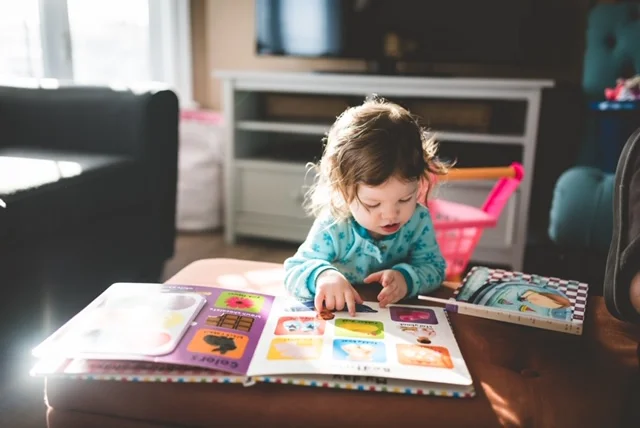Speech & Language Therapy
As mothers, we have spent hours upon hours trying to teach our babes to say their first words. It’s one of those moments you will never forget. Mason first said “mama”, and both Wynn and Nora’s first words were “dada”. Teaching them their first words, and every subsequent word thereafter, takes time and continuous learning. But what if your baby hasn’t babbled much at all or your toddler isn’t speaking at all.
We were thrilled when Sandbox Speech Therapy, locally owned by Jennifer and Jade, reached out to us about sharing information about speech and language therapy. Jennifer and Jade are speech-language pathologists who run their family centered private practice here in Winnipeg. They love being able to share their love of speech and language development through their group workshops and private therapy in your very own home!
The following post was written by Jennifer and Jade as subject matter experts in their field. They will also be doing a Q&A story takeover on our Instagram page where they will be able to answer any and all your questions!
“Children develop at their own rate. Some walk and talk early, while others take longer. First they hold their necks up, sit, roll, crawl, and then walk. In the mix, they are breastfed, bottle fed, introduced to purees, solids, sleep training, and/or co-sleeping, Whew! That is a lot to remember as a new parent! What about when your little one is one-year-old and hasn’t said his first word? Or is two and has only a couple words in her vocabulary? Our kiddos are growing and changing so much in their first few years of life, which is why we wanted to share with you the importance of identifying speech and language problems in your child’s development early.
Identifying when your child has a speech and/or language problem as early as possible is so important in your child’s development. Before we dive into some of the early warning signs, we want to explain the difference between speech and language. Speech is your child’s ability to say sounds correctly. Speech is what makes your child’s language understandable. Language is made up of the words your child uses to share ideas, tell stories, and to meet their basic needs. Language is a complex system because it’s made up of understanding, speaking, reading, and writing.
Below are some initial signs of a speech and/or language disorder:
Baby is quiet and is not babbling (mamamama, dadadadada, gagagaga) between four and 12 months of age
Not using any natural gestures (waving, pointing, clapping) by 15 months
Not saying words at 18 months
Saying less than 50 words by age two
Not putting two words together consistently by age two (e.g, mommy go)
Words are not easily understood, even by close family, by age three
Strangers have a hard time understanding what the child is saying by age four
Frequent ear infections.
• Speech and ear infections… what? Yes! If your child has chronic ear infections, there is often fluid in the middle ear which can cause some temporary hearing loss. We need to be able to hear appropriately in order to speak, so if your child is having a difficult time hearing, his/her language may be delayed.
If you think your child is exhibiting any of these warnings signs of speech or language disorder, we are here to help! It’s important to seek the advice of a pediatrician or speech language pathologist. Catching these problems early is key to prevent future problems in school with learning and literacy.”
Thank you to Sandbox Speech Therapy for sharing all of this valuable information. If you have any more questions, please visit their website. They also post daily talk tips for you and your children on Instagram!


